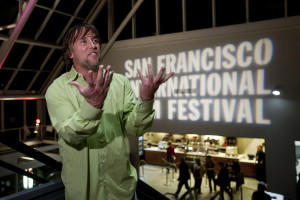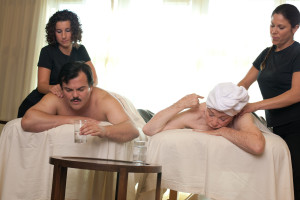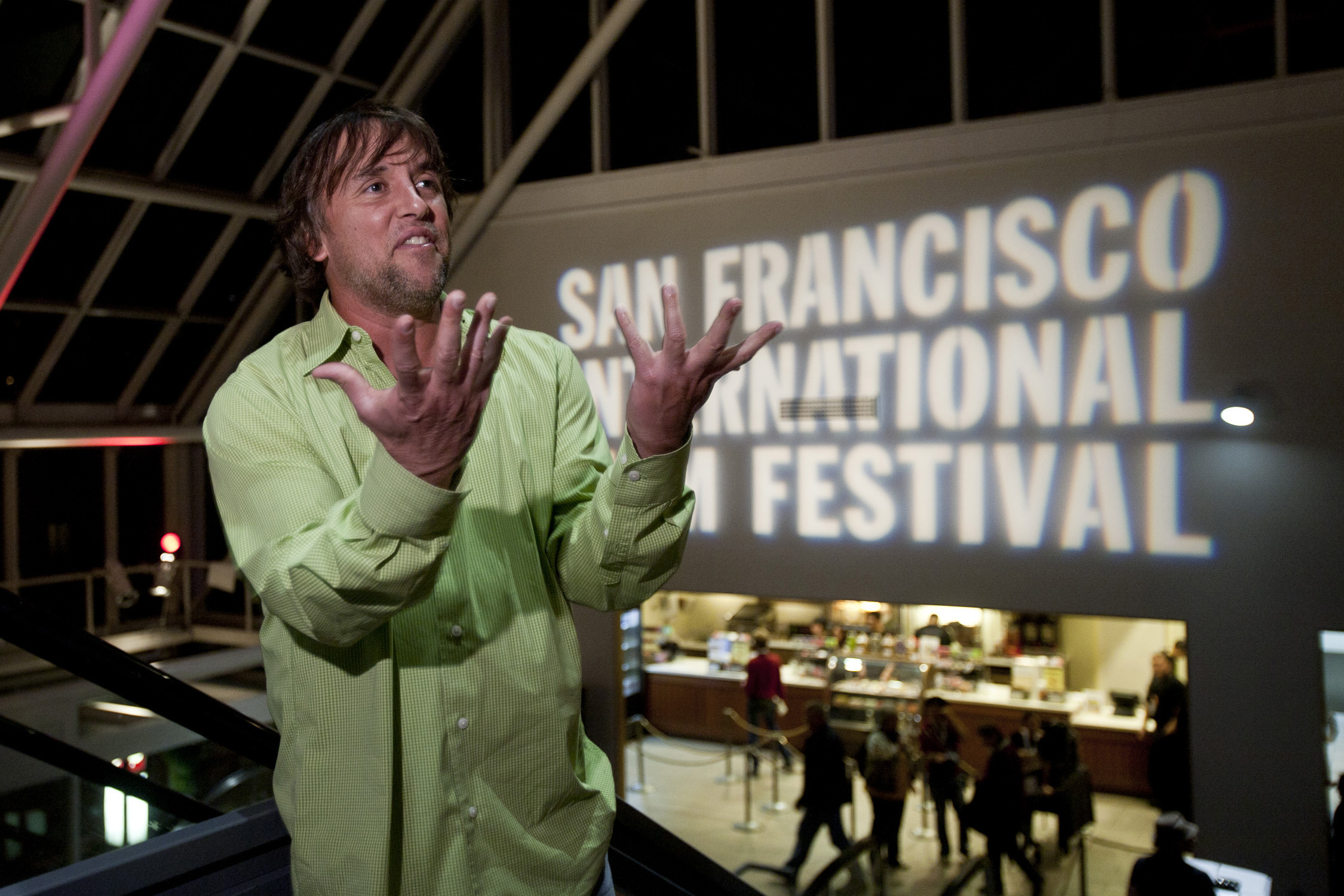
“Bernie,” premiered last month at the San Francisco International Film Festival, where I caught up with Director Richard Linklater. Though he had a full day of interviews scheduled, Linklater remained laid back, friendly and open, sporting a Criterion Collection t-shirt and jeans.
Although he is well loved for his early Gen X films like “Dazed and Confused” and “Slacker,” and even more so for his heady, intellectual films “Before Sunrise,” “Waking Life” and “Before Sunset,” Linklater has lately been making more mainstream films like “Bernie”.
“Bernie” tells the true story of Bernie Tiede, a mortician in Carthage, Texas, who murdered the meanest lady in town, Marjorie, and nearly got away with it. Linklater became interested in Bernie way back in the 90s, during Tiede’s trial for murder.
“This was a magazine article I read and kind of pursued and attended the trial,” Linklater said. “The magazine article ended inconclusively … you think Bernie is going to get off kind of lightly. That’s where I got on the bandwagon, and I went to the trial.”
Linklater co-wrote the film with journalist Skip Hollandsworth, who wrote the original magazine article about Bernie’s trial.
“Everything really happened,” he explained. “There are really no elements of the movie that are fictitious. It was like a journalistic piece. We really stuck to the public record, and we were going off a really thick file from the trial, evidence and interviews”.
While staying faithful to the actual events, Linklater also worked to balance his representation of the South as accurate without being offensive.
“[I have] a lot of affection for these people,” said Linklater of his East Texas upbringing. “I’m a homeboy. These are my people. Southerners are sensitive to being portrayed in the national media as a bunch of backwards-thinking rednecks, which they certainly are, but what they always miss is the humanity and the friendliness.”
“There’s a really wonderful side to it that’s often not part of the equation when they’re portrayed,” he added. “When I was making the film, I was trying to assure people that, you know, I’m from here. I will portray it how I will, but I get it. This is a film from the land time forgot. It feels like a period film, even though Bernie has an iPhone, but it could be the 1970s.”
Although the film is very funny, Linklater insists it’s not a satire: The humor comes from “the irony of it all.”

“It’s a weird contradiction,” he said. “Here’s a law-and-order town in Texas, and Texas is a pretty tough place, with a huge prison population. It’s like guilty, throw-away-the-key kind of thing. But, in this case, they didn’t want this guy prosecuted because they liked him. There’s something kind of human about that.”
“Bernie” is a mockumentary, full of interviews with town gossips.
“Oh, almost all those people in the kind of Southern, gossip circle chorus, the majority of those are from Carthage or that area, little towns around there. There were a few professional actors, but mostly they were non-actors, people I found funny or interesting. I mean the test was, here’s all these interesting people, and then I gave them lines.”
Interestingly, none of the lines for the gossip circle were written with any particular character in mind, and that’s generally how Linklater works for ensemble pieces, from “Dazed and Confused” to “Bernie.”
“I really just had all those lines written, and then I knew it would be personalized to the cast,” he said. “It was like, ‘Here, you have the text,’ but then lines would be assigned after casting. It’s what I’ve always done with ensembles. I get the same note on every script for an ensemble piece: ‘They [the characters] all kind of sound the same.’ But you cast really unique people with really unique characteristics, and it will be differentiated on film.”
Linklater has always relied on a variety of personalities within the cast to diversify dialogue.
“You have to cast your ensemble very carefully for different personalities,” he said. “If two are too similar, maybe that’s not a good idea. It’s like an orchestra. So that’s the fun part, really: finding the personality. Because to me, in movie making, that’s the magical moment where this lines, this text, meet the person, the actor. The lines manifest themselves through the actor’s personality, quirks and characteristics.”

When asked how he came up with the aesthetic for the film, Linklater mused that “you feel your way through the story, and the locations show you how to shoot it.
And for fans of Linklater’s older films, will we be seeing Jesse and Celine from “Before Sunrise” and “Before Sunset” again? From the horse’s mouth: “Who knows? It has been about the same amount of time as between the previous two films. Julie and Ethan are now in their early 40s: Life piles up, and things change. It’s in the air a bit, but nothing’s set. It certainly would be fun to work with them again. We don’t want to just do it unless we really have something to express, especially as time goes by. But I kind of feel like we’re getting there, actually.”
